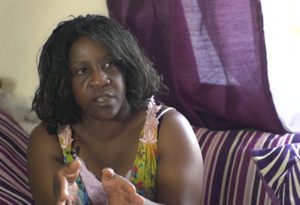Professor Val Williams, from the Norah Fry Centre for Disability Studies at the School for Policy Studies discusses a recent project to understand people’s personal experiences of the social care assessment process.
Every day we hear about a different crisis in the NHS, some of which, at the least, can be attributed to problems in the funding of social care.
So, what happens to people who need to ‘apply’ for social care? It’s not like phoning up the doctor’s surgery and seeing your GP. To get into the social care system, you first need to have an assessment. And that assessment process will go on to determine how you will be funded, and what support may or may not be considered essential to enable you to live your life. Sounds simple? Not necessarily so. As the findings from our recent research ‘The Values of Assessment: Disabled adults and social care’ show.
The research team, led by Val Williams and Sue Porter at the Norah Fry Centre for Disability Studies, worked in partnership with members of a peer support network at the West of England Centre for Inclusive Living (WECIL) , a local disabled people’s organisation, to understand their personal experience of assessments. These stories revealed the sometimes deeply felt emotions and negativity which can be created by an assessment. It can, for example, be very difficult to portray yourself as ‘needy’, to tell someone else about all the things you cannot do, rather than share the positive things you can do.
, a local disabled people’s organisation, to understand their personal experience of assessments. These stories revealed the sometimes deeply felt emotions and negativity which can be created by an assessment. It can, for example, be very difficult to portray yourself as ‘needy’, to tell someone else about all the things you cannot do, rather than share the positive things you can do.
The 2014 Care Act was being implemented at the time this research was carried out, requiring social care practitioners to focus on disabled people’s own chosen outcomes in their lives, and to carry out assessments in a personalised way, so that disabled people achieve ‘wellbeing’. Everyone is different and real personalisation means recognising that fact.
All this sounds great, but the disabled people who worked with us knew that things can feel very different in practice.
The core part of this project, led by Jon Symonds, included interviews with 30 practitioners, and the messages which came from them were actually very similar to those from disabled people. In fact, the disabled researchers in the WECIL group helped to find meaning in the practitioner interviews, by listening to extracts and discussing them with the team. The theories of social care assessments might sound good, but they are often hard to achieve in practice.
‘Social workers have so many pressures on them that it is sometimes difficult for them to put the principles into practice’ said Symonds. ‘Resource Allocation Systems restricted the amount of funding available to meet a person’s needs and although many would advocate for disabled people with their managers, some would also negotiate with a person which demands were reasonable and more likely to be funded’.
The disabled people interviewed in this project said that what was most needed was ‘trust’. Practitioners also spoke about establishing a personal relationship, listening and taking time for trust to build. However, practitioners described meeting with some potential clients they felt could not be trusted:
‘Sometimes they need help but don’t want it, and sometimes they want help and don’t need it’. (Practitioner interviewed in the ‘Values of Assessment’ research).
So, there is still a need for social workers to exert ‘professional judgment’ to help some people decide what will best enable them to experience wellbeing. These are the more difficult things to discuss, and to reconcile with the views of disabled people themselves, who want control over their own lives. For truly independent living, people need support and may even need help in reaching a decision about that support. However, they also want to be part of the conversation, to speak up for themselves, and to be full partners in that assessment process. Achieving that joint interaction is much more than just ticking a box on an assessment form.
On January 19th 2017 we launched a set of videos, which were created by members of the team led by Jon Symonds, and feature the experiences of the WECIL group. These videos were designed to start the conversation between social work practitioners and disabled people who use social care. The most important thing to learn from the disabled people in these videos is that they could understand, empathise and work with the practitioners who were assessing them.
The videos from this project are now freely available, and the project team would like to hear back from anyone who has used or watched them – for training, for discussion, or just for fun. We would like to know how they’re being used, and how they could make a difference.
The ‘Values of Assessment’ videos are dedicated to Dr Sue Porter, who died suddenly on 11 January 2017, whose inspiration and leadership made this project possible. Her untimely death was a tragic loss to the disability movement, and to disability research.


